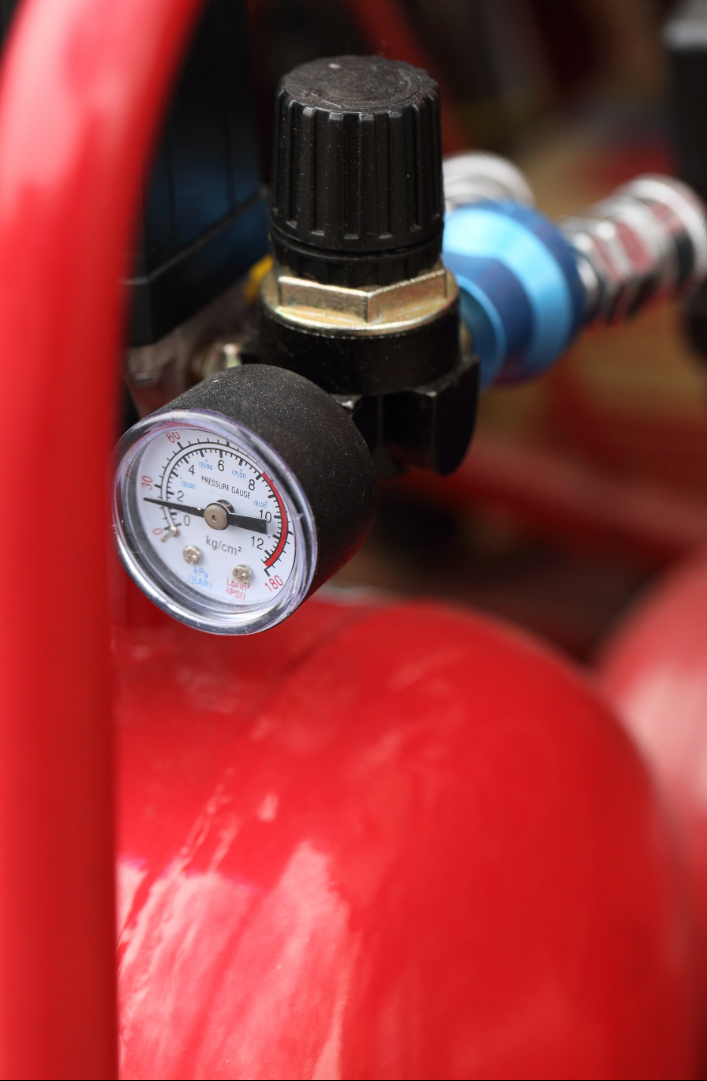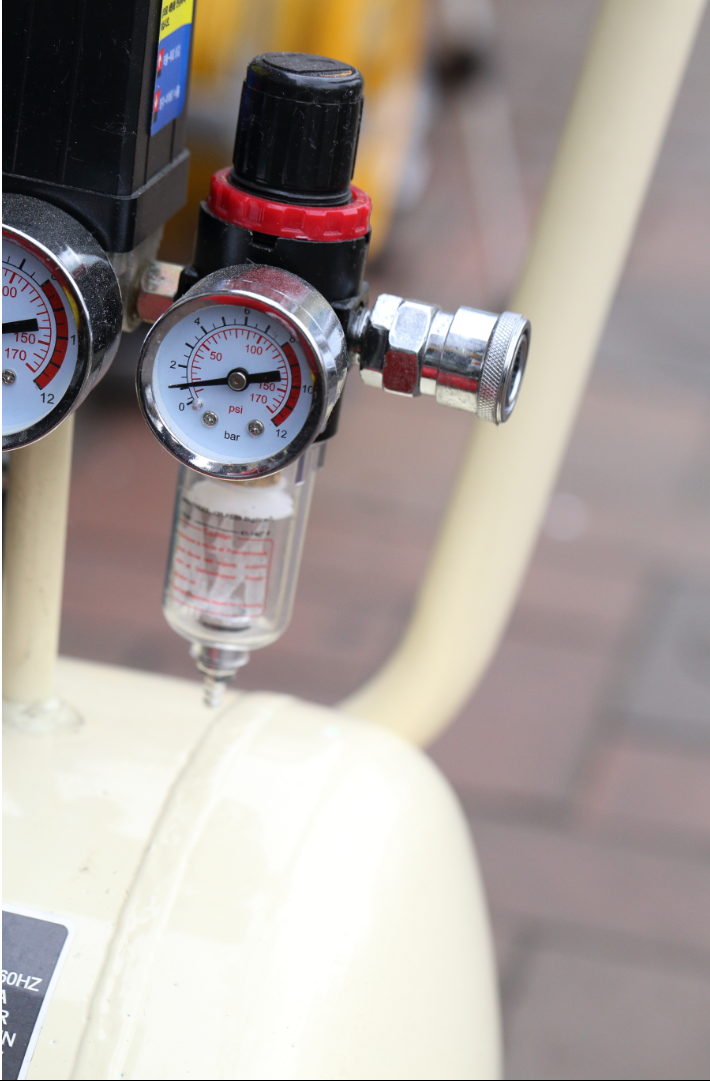What is the common problem with air compressors?
Common problems with air compressors include issues like low pressure, excessive noise, overheating, air quality concerns, and electrical problems. These challenges can disrupt operations and require troubleshooting and maintenance to ensure the compressor’s efficiency and reliability. If you encounter complex problems or require expert assistance, reaching out to a reputable service provider like Compressed Air Systems UK can help address and resolve these issues effectively.
Introduction
Troubleshooting air compressor issues is an essential skill for anyone relying on compressed air in the United Kingdom, where the climate can pose unique challenges. From low pressure to temperature fluctuations, air compressors can encounter a range of problems that, if left unaddressed, can disrupt operations and lead to costly repairs. In this guide, we’ll delve into the art of troubleshooting common air compressor issues in the UK, offering insights and practical solutions to keep your equipment running smoothly. By understanding the intricacies of these issues and how to address them effectively, you can ensure that your air compressor remains a dependable asset, regardless of the weather conditions and demands of your applications. For major issues or expert assistance, don’t hesitate to contact Compressed Air Systems UK for comprehensive compressor service and solutions tailored to the specific needs of the UK market.
Troubleshooting Low Pressure or Inadequate Airflow in Your Air Compressors
When you rely on your air compressor for various tasks in the UK, encountering low pressure or inadequate airflow can be a real roadblock. To effectively troubleshoot and address this common issue, it’s essential to understand the nuances specific to air compressors, which are the powerhouses behind various applications.
Low pressure or inadequate airflow is often indicative of underlying issues. Start by examining the following potential causes:
- Air Leaks: Check for leaks in hoses, connectors, and other components. Even small leaks can significantly impact pressure and airflow.
- Worn Components: Over time, components like gaskets, seals, and valves may wear out, leading to reduced pressure. Inspect these parts for signs of wear or damage.
- Air Filter Issues: A clogged or dirty air filter can restrict airflow and lead to low pressure. Regularly inspect and replace air filters as needed to maintain efficiency.
Troubleshooting Techniques
To address low-pressure or inadequate airflow, consider these troubleshooting techniques:
- Leak Detection: Perform a thorough inspection to identify and fix any air leaks. Tighten connections and replace damaged components to prevent leaks.
- Component Replacement: If worn or damaged components are found, replace them with high-quality replacements to restore optimal airflow and pressure.
- Air Filter Maintenance: Ensure air filters are clean and unobstructed. Regular cleaning or replacement can help maintain the necessary airflow.
By addressing these issues and regularly conducting preventive maintenance, you can ensure that your air compressor operates at its best, providing the pressure and airflow required for various applications in the UK’s unique climate. Whether you use your air compressor for professional or DIY purposes, maintaining optimal pressure and airflow is essential for reliable performance.
Addressing Excessive Noise and Vibration in Your Air Compressors
Excessive noise and vibration in your air compressor can disrupt operations and indicate underlying issues. Troubleshooting these problems is essential for maintaining a smooth and efficient compressor operation, especially in the UK where noise regulations and stability are important.
Identifying the Air Compressor problem
When your air compressor generates more noise and vibration than usual, it’s essential to pinpoint the root causes. Here are some common sources:
- Unbalanced Components: Misaligned or unbalanced components, such as pulleys or fans, can cause vibration and noise. Inspect these parts for proper alignment.
- Worn-Out Mounts: The mounts that secure your compressor to the ground or a base can deteriorate over time, leading to increased vibration and noise. Check the condition of these mounts.
- Loose Parts: Loose bolts, fasteners, or other components can create vibrations. Ensure all parts are securely tightened.
Troubleshooting Techniques To address excessive noise and vibration:
- Balance Components: Ensure all moving parts are properly balanced. Replace or rebalance components as needed to reduce vibration and noise.
- Check Mounts: Inspect and, if necessary, replace mounts to reduce vibration. Consider anti-vibration mounts for additional stability.
- Tighten Fasteners: Regularly check and tighten all fasteners to eliminate any loose parts that may contribute to vibrations.
By troubleshooting and addressing excessive noise and vibration, you not only improve the comfort of your working environment but also extend the lifespan of your air compressor in the UK. A quieter and more stable air compressor contributes to efficient and reliable performance, which is essential for various applications, whether professional or DIY.

Tackling Overheating and Temperature Fluctuations – Common Air Compressor Problems
Overheating and temperature fluctuations in air compressors are among the common air compressor problems faced by users in the UK. These issues can lead to reduced efficiency and potential damage, making it crucial to understand the causes and remedies specific to these problems.
Overheating and temperature fluctuations can result from various factors:
- Inadequate Ventilation: Poor airflow around the compressor can lead to overheating. Insufficient ventilation doesn’t allow for the dissipation of heat.
- Malfunctioning Cooling Systems: If the compressor’s cooling mechanisms, such as fans or radiators, are not functioning correctly, it can result in overheating.
- Dirty or Clogged Components: Accumulated dirt or debris on vital components can hinder proper airflow and cooling, leading to temperature fluctuations.
Troubleshooting Techniques To address overheating and temperature fluctuations:
- Ensure Proper Ventilation: Improve the compressor’s surroundings to allow for better ventilation. Ensure that there is enough space for air to flow around the unit.
- Check Cooling Systems: Verify the functionality of cooling systems, including fans and radiators. Replace or repair any malfunctioning components.
- Clean and Maintain: Regularly clean and maintain the compressor’s components to prevent the buildup of dirt and debris that can disrupt airflow.
By troubleshooting overheating and temperature fluctuations, you can ensure the efficient and reliable operation of your air compressor, even in the UK’s varying climate conditions. Maintaining the appropriate temperature is vital for the longevity of your compressor and the consistent supply of compressed air for your applications.

Ensuring Air Quality and Contamination Control
Identifying the Problem: Air Quality Issues
Maintaining clean, contaminant-free compressed air is essential for many applications in the UK. However, air compressors can face challenges related to air quality and contamination. Common issues include:
- Moisture Accumulation: Moisture can condense within the air compressor tank, leading to rust, corrosion, and potential damage to downstream equipment.
- Oil Contamination: Oil carryover can occur, especially in older compressors, contaminating the compressed air supply and impacting the quality of the air.
- Particulate Contaminants: Dust, debris, and particulate matter can find their way into the air stream, affecting the air’s cleanliness and suitability for applications.
Troubleshooting Techniques: Air Quality
To maintain air quality and control contamination:
- Install Air Dryers: Consider the installation of air dryers to reduce moisture in the compressed air. These devices help prevent rust and corrosion.
- Regular Filter Maintenance: Ensure that filters, including coalescing filters and particulate filters, are cleaned or replaced as necessary to remove oil and contaminants.
- Drain Condensate Properly: Regularly drain the condensate from the air compressor’s tank to prevent moisture-related issues.

Addressing Power and Electrical Problems
Identifying the Problem: Power and Electrical Issues
Power and electrical problems in air compressors can disrupt operations. Common issues include:
- Motor Failures: Motor failures can result from electrical problems, overloading, or wear and tear, leading to a lack of power.
- Power Supply Issues: Irregular power supply or voltage fluctuations can impact the compressor’s performance.
Troubleshooting Techniques: Power and Electrical Issues
To address power and electrical problems:
- Motor Inspection: Regularly inspect the motor for signs of wear and damage. Replace it if needed to restore power.
- Ensure Stable Power Supply: Use voltage stabilisers or surge protectors to ensure a stable power supply for the compressor.
By troubleshooting air quality and electrical issues, you ensure that your air compressor in the UK delivers clean, contaminant-free compressed air and operates reliably with consistent power. These are critical aspects of maintaining efficient and dependable compressed air for various applications.
Conclusion
Troubleshooting common air compressor problems is an essential skill, especially in the UK, where the climate can present unique challenges. Addressing issues like low pressure, excessive noise, overheating, air quality, and electrical problems is crucial for maintaining optimal compressor performance and reliability.
For more complex problems or expert assistance, consider reaching out to Compressed Air Systems UK. They offer on-site servicing and provide a wide range of compressor parts and accessories online. With their expertise and support, you can ensure that your air compressor operates at its best, meeting the demands of your various applications while maintaining efficiency and reliability.
Ready to address and resolve common air compressor issues in the UK? Whether you need expert servicing or require high-quality compressor parts and accessories, Compressed Air Systems UK is here to assist you. We offer on-site servicing to keep your equipment in top condition and provide a comprehensive range of compressor parts and accessories online, making it easier than ever to maintain your air compressor. Don’t let common problems disrupt your operations; contact us today to ensure your air compressor remains a dependable and efficient asset for your applications. Reach out to us at 01217533330 and experience the difference of working with Compressed Air Systems UK.




